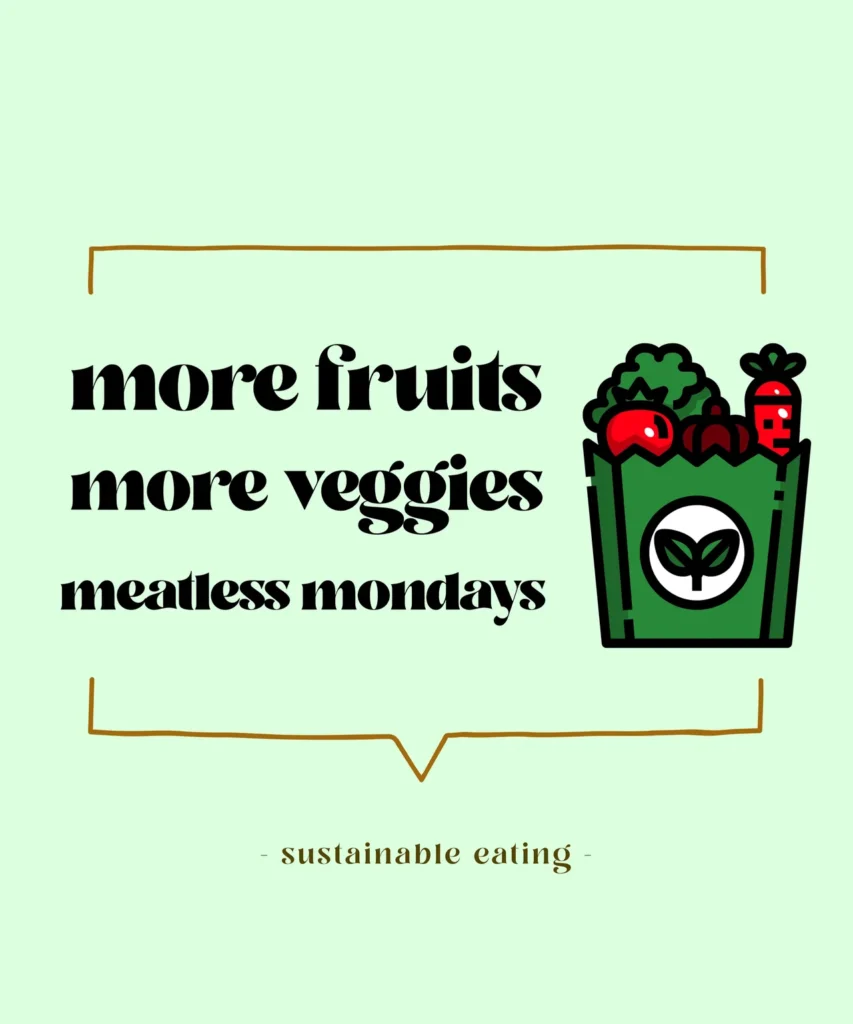
It’s no secret our planet is in crisis. Humanity’s carbon footprint is huge.
Mother Earth needs our help to do everything we can, even if only by a little bit every day.
Each little thing you do can add up in a big way, so we’ve compiled a list of small things you can do to join the Eco-Friendly movement and work to help the environment.
Shop more eco-friendly clothing
Textile production contributes more to climate change than international aviation and shipping combined! Fashion accounts for 20-35% of microplastic that flows into the ocean, and washing, solvents, and dyes used in manufacturing are responsible for one-fifth of industrial water pollution. It’s important now more than ever to research the companies we’re buying from to ensure they are transparent and doing everything they can to reduce their carbon footprint — like us!
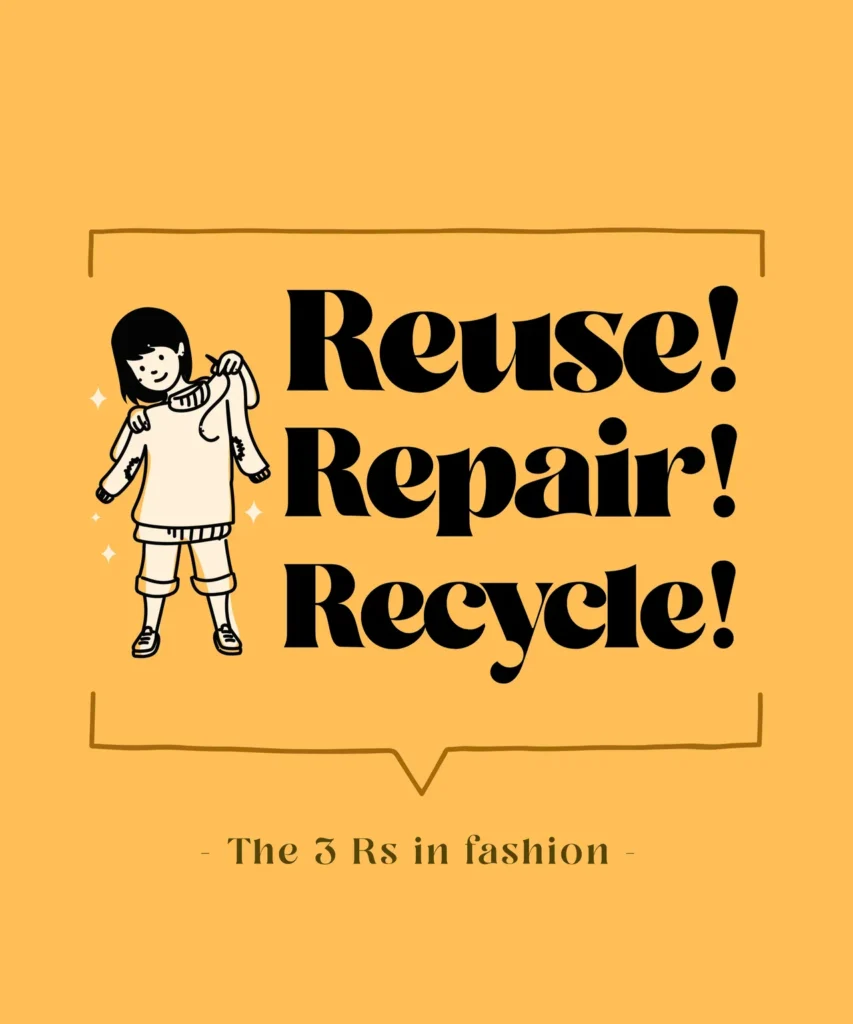
Not only do we make sure that our products are made with high-quality, eco-friendly materials, like organic cotton, but they also use 100% vegan, water-based, biodegradable, non-hazardous, and nontoxic inks. We vet all of our manufacturers beforehand to ensure all the manufacturing processes use low-water, low waste, and eco-friendly methods.
We will also be partnering with EcoMatcher and OneTreePlanted to plant a tree with every order we receive once our new website goes live! On top of that, we will be offering two additional cart add-ons! One that allows you to sponsor a homeless animal through Best Friends, a no-kill shelter organization. With this, you’ll receive pictures and other tidbits of information regarding the animal you sponsor. The other add-on will allow you to donate to our charity of the season. These charities are nominated and voted on by the employees of Rogue Ramms and are always announced through a Charity Highlight blog, so you can learn more about what you’re supporting!
Use Bites Toothpaste
Over one billion plastic tubes of toothpaste are thrown away each year, meaning more than fifty Empire State Building’s worth of toothpaste tubes end up in our landfills and oceans.
Bites dedicates itself to eliminating plastic waste by not only sending 100% recyclable glass bottles with their first shipment, but also by shipping refills in recyclable, plastic-free envelopes and boxes.
**Not sponsored – we just really like them and want to help promote fellow eco-friendly brands!
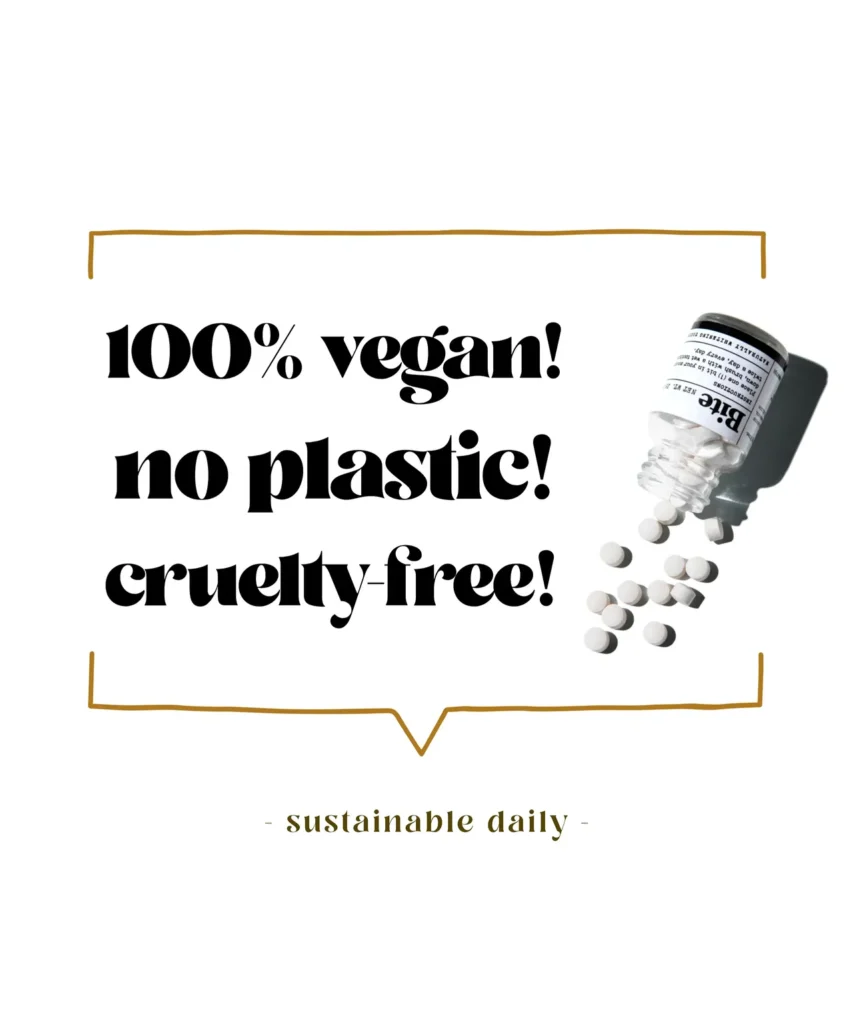
Not only do they sell toothpaste, but their products also include toothbrushes, dental floss, mouthwash, and deodorant. All their ingredients are 100% vegan, gluten-free, and cruelty-free, so you can feel good about what you’re putting in your body. They believe in transparency, and they provide a full list of ingredients on their website, along with complete breakdowns of their purpose and use.
Plant plants and herbs
Not only will keeping plants and herbs around the house add some invigorating greenery to your home décor, but it’s also great for the environment.
Additionally (as we know) plants emit oxygen, and they also naturally absorb any bacteria in the soil and toxins that float in the air — cleaning your air, all while helping you breathe better!
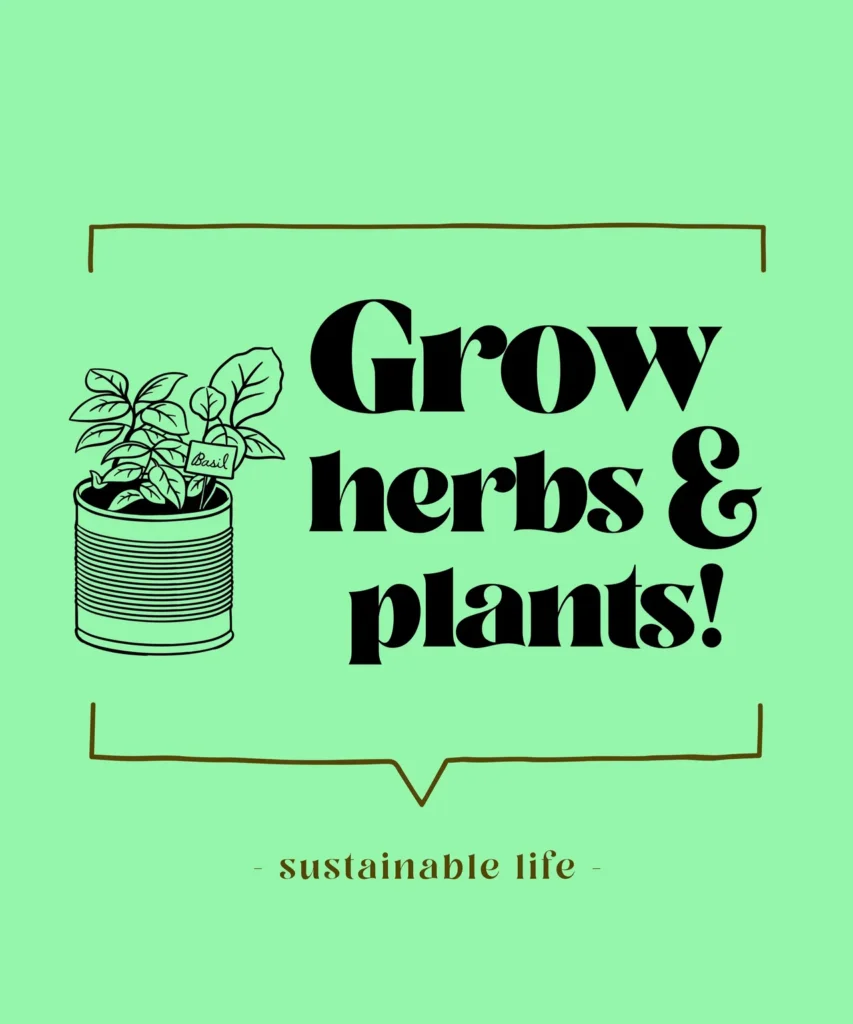
If you don’t credit yourself to having much of a green thumb, you can start with a simple herb planter in your kitchen. Herbs are low-maintenance, and most can be grown all year round. Growing your own is cheaper than buying them from the grocery store, and it allows you to cut down on single-use plastic by not getting them pre-packaged!
If you wanted to take your planting a step further, you can start a little garden of your own in your backyard or even create a community garden somewhere in your neighborhood. You’d be cleaning the soil, improving air quality, and reducing your carbon footprint all in one! Not to mention presenting yourself and loved ones with food you have seriously made from scratch!
Use a water filter over plastic bottles
Did you know that approximately one million plastic bottles are used around the world every single minute?
Plastic containers (like water bottles) and packaging alone amount to 82,200,000 tons of plastic waste per year. There’s no easier, better way to reduce your carbon footprint than by investing in a big reusable metal or glass water bottle and a water filter.
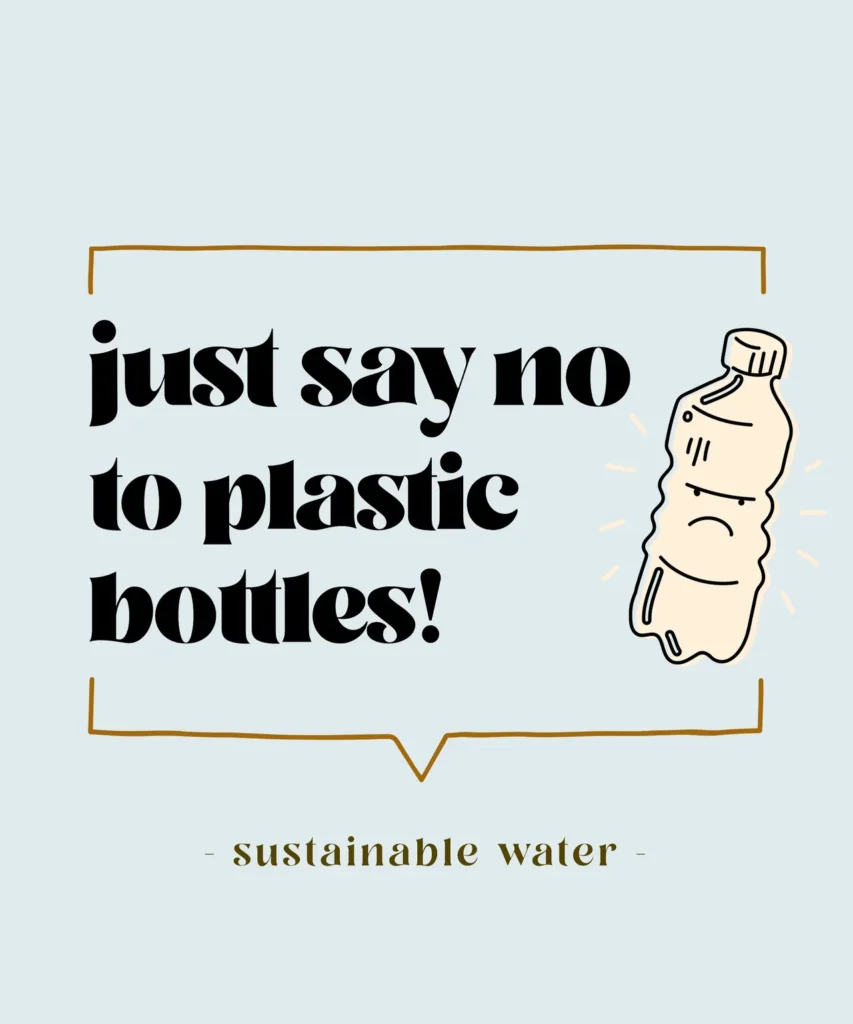
One we use and always recommend here at Rogue Ramms’ is MineralPRO. They’re a family-run business with over a hundred years of water treatment experience. Their filtration system clears out all the harmful chemicals from your local water and replenishes it with essential, natural minerals your body needs. MineralPRO’s Reverse Osmosis system, which tests at the highest level of reduction of drinking water contaminants, includes a mineralizing filter to balance the natural minerals to a healthy alkaline pH and adds back calcium, magnesium, potassium, and sodium. Their reverse osmosis system has the least water waste of these types.
The final stage uses the purest form of carbon that gives the water “a final polish” and “ensures a fresh, crisp taste” — it absolutely passes the taste test for us! **Not sponsored – we just really like them and want to help promote fellow eco-friendly brands!
Not only will you be reducing your plastic use — and thus your carbon footprint — but also drinking water from plastic bottles allows for chemicals from the plastic to leach into your water. So, while under-the-sink filtration systems like MineralPRO can be a little expensive up front, they save you lots of money in the long run, and you’ll know the water that you’re drinking is healthy and safe.
Eat non-GMO and organic
Non-organic and genetically modified farming is detrimental to both the environment and your personal health. American consumers have been consuming GMO products (often unknowingly) since the mid-1990s, and we have no idea how our health will be affected in the long term. Also, where harmful pesticides and chemicals used in non-organic and GMO farming destroy soil and nearby habitats, organic farming practices work to increase soil health and fertility, conserve water, reduce pollution, and use less energy.
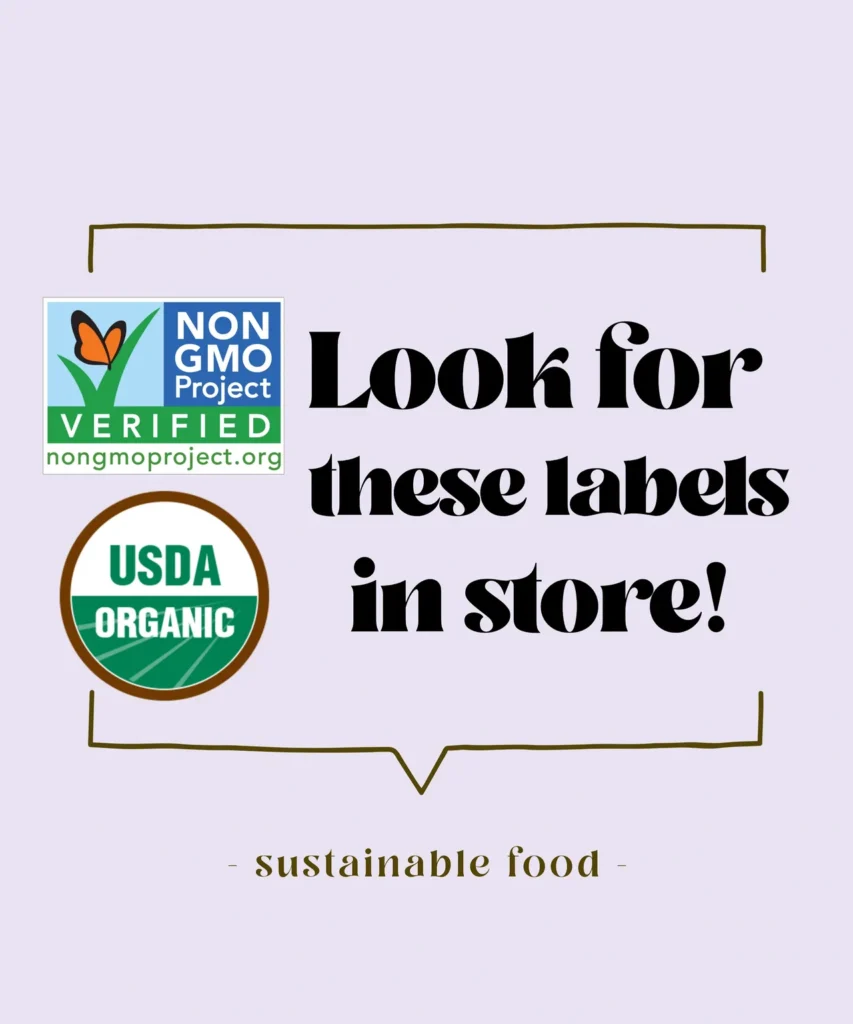
Not only is eating organic better for your body because you’re drastically reducing any harmful chemicals in your food, but studies have also shown that organic foods, like milk, meat, and produce, contain higher levels of nutrients.
I know that buying organic often costs more, but there are a few ways you can get around that. For example, if you can’t afford to buy organic in the produce section, you can always find great deals in the frozen aisles! The bags are typically bigger anyway, and they last a lot longer than fresh ones.
If you have to pick and choose in the organic aisle, look for fruits and vegetables with thin peels or skins you would eat (like apples or tomatoes). If the skin is thick, and you can peel it off (like an orange or avocado), chances are any chemical exposure has been somewhat reduced underneath, even if not removed.
Even by adding just a few organic products to your grocery list, you can make a difference and do your part in supporting better farming practices and your health.
Biodegradable phone cases
Did you know that your average plastic phone case takes up to 1,000 years to decompose? Considering more than one billion plastic phone cases are sold every year, they are causing catastrophic damage to our environment, as they are breakable, and we’re quick to replace them once a newer, trendier version is released.
While biodegradable cases may be a little more expensive at first, they’re built to last and are designed to decompose quickly once they are disposed of. Plus, they’re available in a variety of cute styles!
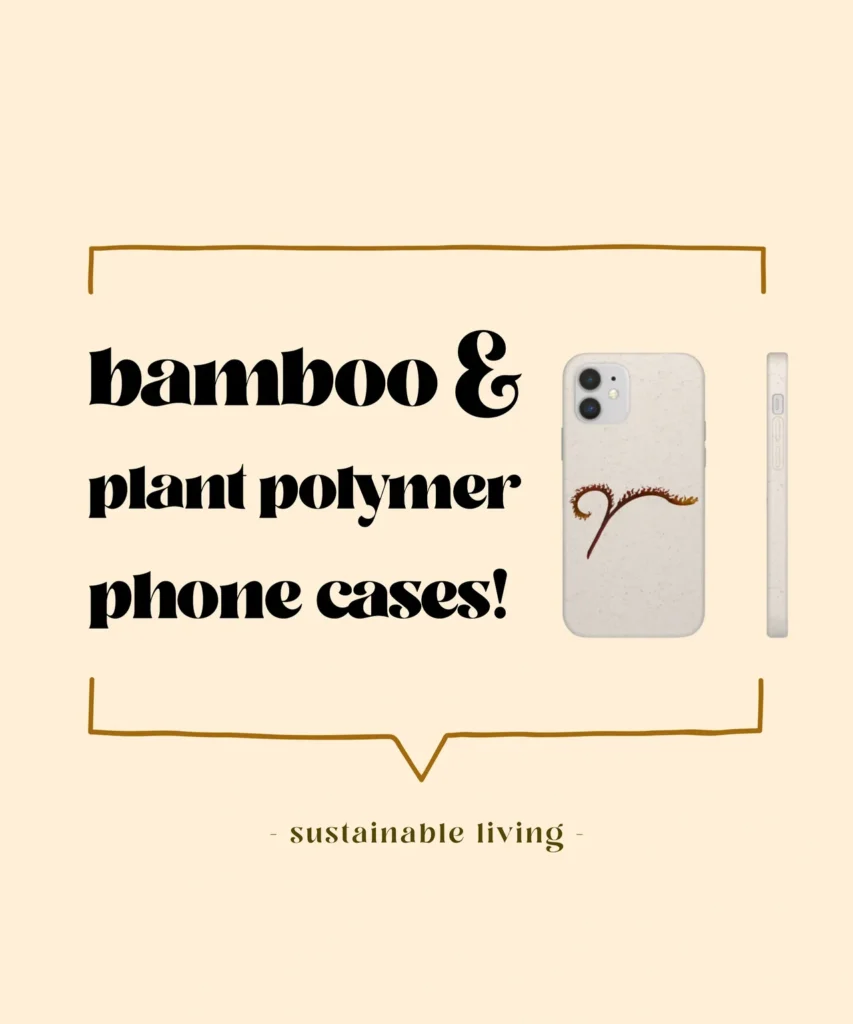
We are so excited to announce that we’ll now be carrying biodegradable phone cases in our store! Made from plant polymers and bamboo binders to create a tough and rigid case, these babies are 100% plastic-free, and even the packages we’ll be shipping them in are made from recycled materials. Our cases are designed to decompose within 160 days after being disposed of (within compost conditions, of course) so if you ever did want to trade it in for a different model, you can do so without feeling guilty for contributing to the earth’s plastic waste crisis!
Unplug!
You may think that by turning your tv/computer off before you leave the house means that they’re no longer using electricity, right? Wrong!
Just because your electronics are powered down, it doesn’t mean they’re actually off. They’re often just in standby mode, still drawing “phantom” energy from your outlets even though they’re not in use. This goes for phone chargers, printers, and even unused appliances like your washer or dryer.
According to the Natural Resources Defense Council, the energy used by appliances left plugged in but not in use has accrued a cost of $19 billion across the US, amounting to 44 million extra tons of carbon dioxide (4.6% of the country’s total residential electricity generation).
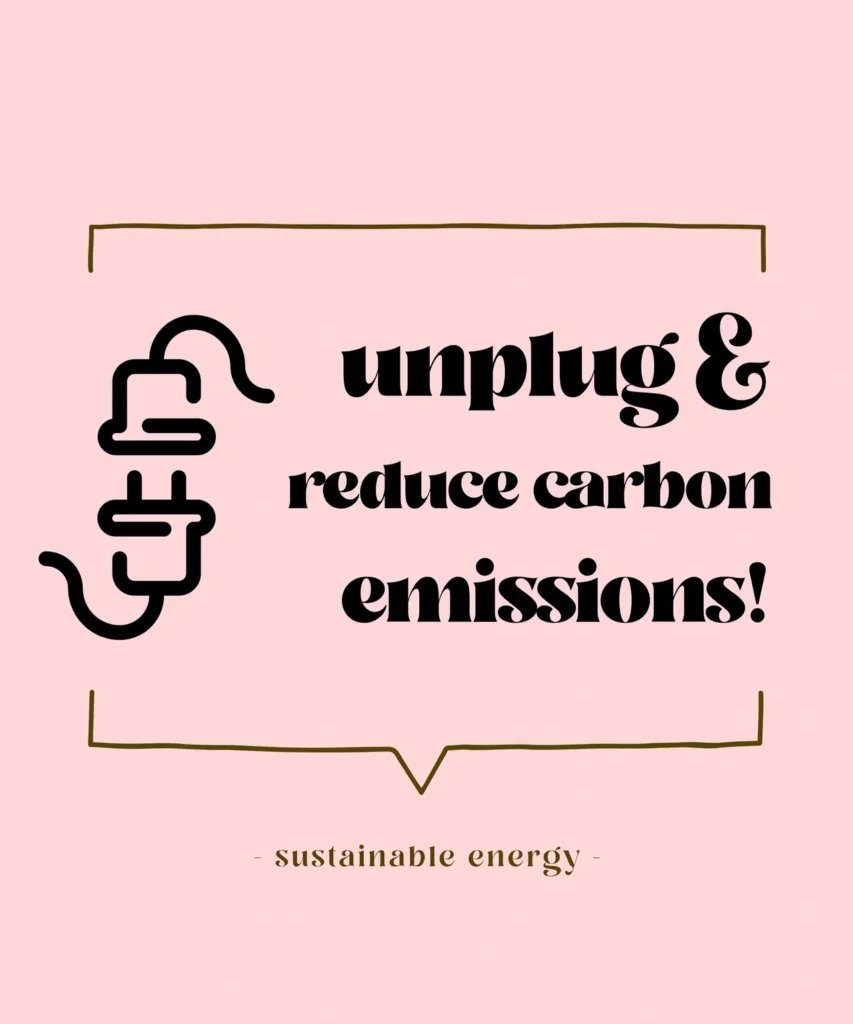
So how can you combat this? The simple answer is just to unplug everything you aren’t using, which I know is a lot easier said than done. Keeping all your electronics plugged into power strips that you can quickly turn on and off with one switch is an easy way to ensure you’re turning everything off when you’re not using it. There are even smart power strips you can purchase with a motion sensor that turns off all your electronics automatically when you leave the house. That way, if you’re ever forgetful (like me), you’ll be able to cut back on that wasted energy to save both the planet and your wallet!
Meatless Mondays!
Did you know that the energy it takes to produce one quarter-pound beef burger uses the same amount that it would take to power an iPhone for 6 months? Now, I’m not saying you have to go full-on vegan to save the environment (although we applaud those who do), but cutting out meat as little as once a week can have a hugely positive impact on both the environment and your health.
About 1,850 gallons of water are needed to produce a single pound of beef, whereas only 39 gallons is needed to produce a pound of vegetables. So not only would cutting back on your meat intake improve your heart health and reduce your risk of heart disease and developing Type 2 Diabetes, but you would also save about 133 gallons of water and reduce your individual carbon footprint by about 8 pounds with each meatless meal you make!
Alternatives to meat include beans, vegetables, lentils, and/or grains. Even just switching from red meat to fish is better than nothing, but you’ll see the greatest health benefits and environmental impact by sticking with a meal that’s strictly plant based.
